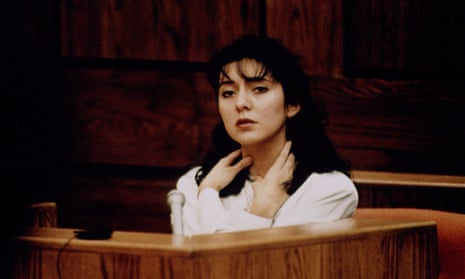I was born at the end of the 1970s, which means I am somewhat in a no man’s land, generationally – at the fag end of Gen X, too old to be a millennial. “Xennial” someone suggested recently, and what that term lacks in clarity it also lacks in pronouncability. So I prefer something less snappy but more descriptive: too young to remember John Lennon’s death, but old enough to remember Tiffany.
One thing that is non-debatable about my generation is that we all came of age in the 1990s. Any sensible adult will look back on their teenage years with vague bemusement. (And any adult who doesn’t should be avoided at all costs: the best thing about the film Juno was Jason Bateman’s character, who illustrated the toxicity of a grown man who still thinks he is 18.) But these days it does feel that the 90s was an exceptionally weird time, especially for girls.
It was the decade of post-feminism. Feminism’s second wave had crashed out in the 1980s and, while feminists still existed, it became accepted mainstream thinking that the campaign for equality was now sorted and – Oh horror! – uncool. Modern women wore shoulder pads! Who needed those miserable hairy-armpitted harridans any more?
While the 90s began with Thelma And Louise, Pretty Woman became the defining female film of the decade, opening with the ultimate “meet cute” of a man picking up a woman on Hollywood Boulevard and paying her for a blow job. (Aww, one to show the grandkids!) The rom in Pretty Woman was all about a man paying for a woman’s body, and the com was predicated on how fun it is to spend a rich man’s money; and the mood was pretty much established from there. Instead of the gender equality of His Girl Friday and When Harry Met Sally, we got the creepy fairytale hysteria of Never Been Kissed, My Best Friend’s Wedding and You’ve Got Mail, in which women humiliated themselves in order to gain that all-important prize: a man. As a teenager, my favourite movies were Clueless, She’s All That and 10 Things I Hate About You, all of which were about how to change yourself to make a boy like you. Say what you like about teen culture today, but at least not every movie is telling girls they need a makeover (instead we leave it to social media to do that).
Retrospectively damning pop culture has become something of an old shtick now. But I increasingly feel that the most formative narratives of the 90s came not from fiction but fact. Nineties women who dared to speak out, from Anita Hill to Janet Reno to Courtney Love, were derided with a glee that was downright Victorian. So it’s been fascinating for my generation to look back at the stories we grew up watching on the news and – instead of damning them – belatedly reclaiming them.
Get Out director Jordan Peele is almost exactly the same age as me, so it makes a pleasing kind of sense that he is also the producer of Lorena, the new Amazon Prime documentary about Lorena Bobbitt. In 1993, Bobbitt notoriously cut off her husband’s penis with a knife as he slept, and of all the 90s women who were held up as warnings about what happens to women who unleash their rage (Tonya Harding) or sexuality (Monica Lewinsky), none was as mocked and dismissed as Bobbitt. Haha, just look at her surname: classic nominative determinism! As the woman now known as Lorena Gallo said in a recent New York Times interview, “It’s like they didn’t care why I did what I did.”
Few things make the 90s feel further away than the contemporary media coverage of Gallo, an immigrant who stated in court that she had been subject to years of domestic abuse. (Bobbitt himself has since been convicted, twice, of battery against women.) But the male columnists of the time wagged their fingers and told women that supporting Bobbitt was not how to Do Feminism Right. Gay Talese, reporting on the case for the New Yorker, asked if marital rape was actually a thing. The New York Times quoted Mel Feit, a self-described men’s rights advocate, who argued that, “This is the result of feminists teaching women that men are natural oppressors.”
It’s tempting to think that the lesson of Gallo’s story is that the 90s were a foreign country. I think the lesson is that you don’t notice the water is boiling while you’re still in the pot. Bobbitt’s history of domestic abuse would probably be taken more seriously today, but it is not difficult to imagine today’s teenagers going on to make documentaries about how weird it was in 2019, when people still fretted openly over a female politician’s “likability” (see Elizabeth Warren and Hillary Clinton); when people spewed vicious garbage about Meghan Markle and Serena Williams; when men still felt entitled to tell women how to Do Feminism Right.
Where women were once harangued about getting a man, today they are merely expected to be perfect: strong but not too opinionated; high-achieving but perfectly groomed; successful but not intimidating; feminist but accommodating to the male point of view. Instead, I recommend a different goal: be the person you want to be in the documentary your kids will make in 20 years’ time.

